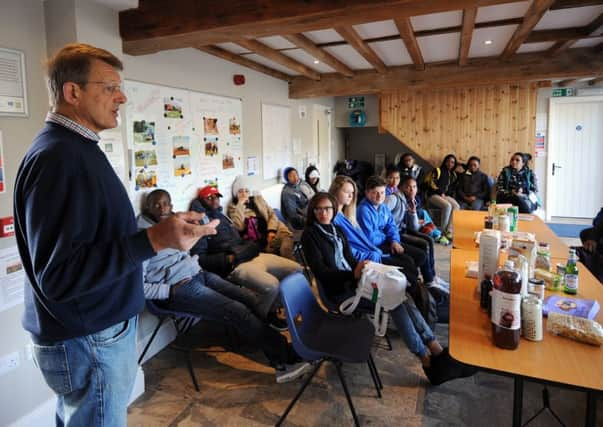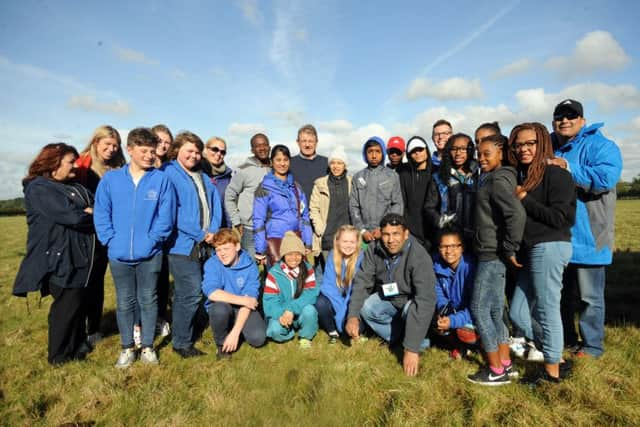Young minds see food production in action for the first time


This educational farm visit was part of a programme run by Mark Thompson and Robert Rook, on Robert’s farm near Market Weighton, which aims to inform teenagers about the realities of food production.
The visits are not about petting farm animals but about getting to grips with the details of producing food.
Advertisement
Hide AdAdvertisement
Hide AdRobert said: “It was originally a suggestion that we do more to educate young people about what actually goes in to producing food. People drive past all the time and see it’s a farm, but not many people are actually aware of what goes on ‘over the hedge’.”


Visits are predominantly aimed at secondary school pupils and older primary school children. Last week was the turn of pupils from Headlands School in Bridlington, who also happened to be hosting South African pupils on an exchange trip and they joined in too.
David Stamper, the school’s director of community, said: “These teenagers from Cape Town come from an inner city area where they often see shootings and muggings and they have not seen open space like this. While they’re here we wanted to show them our heritage and culture and this farm visit was perfect for teaching them about the East Riding.”
Enrico Hartman, one of the South African educators, described how his contingent of pupils live near farms that mainly grow grapes for wine, fruit and vegetables.
Advertisement
Hide AdAdvertisement
Hide Ad“There are very few livestock farms,” he said. “The farms around us usually grow only one crop or rear one type of animal and so seeing a mixed farm like this is very different for us.”


During visit to Robert’s farm the children learned about egg production and saw crops of carrots, potatoes, barley and oil seed rape, and were taken afterwards to Drewton’s farm shop to demonstrate how the food they saw in the fields ends up on their plates.
Wynne Kannemeyer, another South African educator, believed the trip had been eye-opening.
“It has helped the young people to have a connection between where their food comes from and what they buy in the supermarket,” he said.
Advertisement
Hide AdAdvertisement
Hide AdIt is exactly this connection that Robert and Mark want to make so young people have a greater awareness of both where food comes from and the work involved and time invested to produce food every day.
“We want to show young people where their food comes from and we aim to tie that in with the curriculum, like the new food preparation and nutrition GCSE which includes students learning about food provenance,” Mark said.
On visits young people are transported around the farm on a trailer so Robert can show them his fields and his cows and calves. They can also go into the egg packing house, see free range chickens and potato harvesting, farm equipment and the wind turbines that make the chicken sheds energy self-sufficient.
The specially adapted trailer, a classroom conversion funded by Natural England and a series of learning aids, including videos produced by Mark for the ‘Discovering Our Countryside’ website are used to give a complete learning experience.
Advertisement
Hide AdAdvertisement
Hide AdMark said: “It’s been lovely having these children from an inner city South African school but the children from Headlands have also got a lot out of this visit. Farming and agriculture have such a lot to teach us about almost every area of learning that visits like this can help pupils of all ages.”
Robert said: “We like to do these visits in a range of seasons so pupils can see everything from crops being planted and animals being born as well as the chickens which are here all year round.”
Hopefully, next time these children are driven past a farm they will think a lot more about what is actually going on ‘over the hedge’.